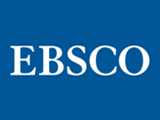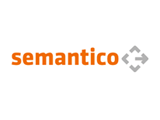Patrons of the Los Gatos Library in Los Gatos, Calif., and other libraries who use the Koha open source Integrated Library System (ILS) supported by ByWater Solutions, will benefit from the recent integration of NoveList Select content into the library’s catalogue.
ByWater Solutions is an open source community supporter and the United States’ forefront provider of Koha support. NoveList Select, a division of EBSCO Publishing, integrates information including, reading recommendations, series information, events, reviews, and book jackets into a library’s catalogue so users can find the information where they need it, when they need it.
Henry Bankhead, Interim Town Librarian at Los Gatos Library, reports that the library’s patrons will have an improved experience with the integration of NoveList Select into the Koha system. “The enhanced content adds reviews from Goodreads, up-to-date series information, recommendations of similar titles and authors as well as links to NextReads newsletters and more. Because of this integration, this content is available right in our library catalogue and is available to any NoveList Select customer using the Koha integrated library system.”
The use of NoveList by the Los Gatos Library is an example of how libraries and their readers benefits when companies work together to support library success. “Libraries that choose Koha as their catalogue solution can now easily integrate the rich content from NoveList Select into their online catalogue and put expertreading recommendations and other expanded content into the place where it is most visible to library patrons,” said Duncan Smith the Vice President of NoveList.
The strength of open source along with the willingness of EBSCO to contribute NoveList content is a win-win for EBSCO, for the Koha community, for Librarians and most importantly for library patrons according to Nicole C. Engard, Vice President of Education at ByWater Solutions. “When educating librarians about open source, I always stress how choosing Koha and exposes people to all kinds of new freedoms. This partnership between ByWater, Los Gatos Library and NoveList shows how multiple groups can come together to improve an open source product for the benefit of everyone using it.”
For more information on NoveList, go to http://www.ebscohost.com/novelistand for information on Koha, please visit http://koha-community.org.































